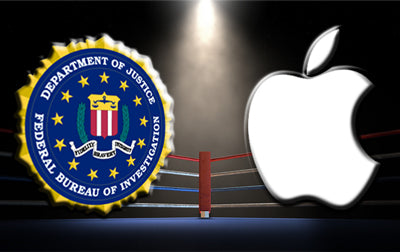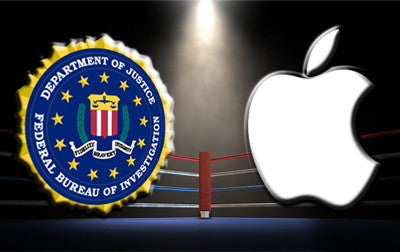 Recently, the Federal Bureau of Investigation with the help of a third-party was able to unlock the iPhone of a terrorist suspect from the 2015 San Bernardino shootings. How they unlocked the phone is still unknown, however the investigation sparked a heated national debate between the importance of national security and personal privacy, and adds fuel to a dilemma that has lasted for several decades, but only more recently made big headlines.
Recently, the Federal Bureau of Investigation with the help of a third-party was able to unlock the iPhone of a terrorist suspect from the 2015 San Bernardino shootings. How they unlocked the phone is still unknown, however the investigation sparked a heated national debate between the importance of national security and personal privacy, and adds fuel to a dilemma that has lasted for several decades, but only more recently made big headlines.
The debate began as a result of a gruesome act of terrorism that was orchestrated in San Bernardino, CA. on December 2, 2015. The terrorist organization known as ISIS praised the attackers, calling them “supporters”, which ignited theories that the two had conspired with the terrorist group to perform the attack. While no direct link between the shooters and ISIS has been identified as of late, the FBI has been steadfast in their pursuit to discover the motives behind the largest act of terrorism on U.S. soil since 9/11.
In their investigation, the FBI recovered an iPhone 5C belonging to one of the suspects. When they recovered the iPhone, it was locked by a 4-digit passcode that was set by the deceased owner of the phone. With Apple iPhones, users can set a 4-digit passcode that locks their phone, preventing anyone from accessing the information stored on the device. Apple states that they would not be able to access a locked iPhone without resetting the device back to factory settings and erasing all the memory, since they do not store users’ passcodes on their servers.
With a roadblock preventing the FBI from making any progress in their investigation, they ordered Apple to hack into the suspect’s iPhone, an act that raised heads within the security and personal privacy community. Apple responded with a firm “no”, stating that Apple does not store the passcodes of their users, and the technology to hack into the iPhone does not exist. Battle lines were drawn and a furious national argument ensued, with deep convictions on both sides of the table as to whether safety and national security should take precedence over personal privacy and protected freedoms.
While some consider the FBI's stance as a justified approach in light of the weighted investigation of possible terrorist ties, privacy advocates see it differently.
Apple's point of view in this case is that if they succumb to the demands of the government and build the technology capable of hacking their own users, what stops the government from using the technology to hack into more phones when it’s not necessarily needed. Apple also argues that the risk of further vulnerabilities will become much greater when such technology exists, and this would diminish the security of their devices and ruin their reputation.
The FBI's point of view is that this is a matter of national security. Accessing the information on the iPhone could help them determine if the shooters acted alone or if they are part of a terrorist organization like Al-Qaeda or ISIS. They could potentially learn the whereabouts of other terrorists and be alerted of planned attacks in the future.
Whether the personal right to privacy will override the importance of national security or vice versa remains to be seen, but what is certain is that this debate is far from over. The issue will continue to be debated as long as technology advances and the need for strong security is essential. As acts of terror continue, national security and personal privacy issues will remain in the spotlight.


